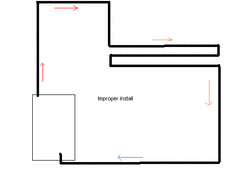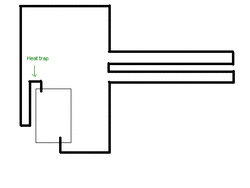I've heard this question debated a few times on a local home improvement radio show. The hosts usually boil it down to the question: What is your hot water usage?
If you live in a 1-2 person household with minimal hot water usage consider electric more closely.
3 people or more (teenagers in the house that take long showers and use multiple bath towels for each shower?) stay with oil.
An oil fired boiler in a house has been sized to heat the house its in for the coldest temps it will see for a given winter. It operates most efficiently when its running hot (winter). In the summer when the only demand is hot water the boiler will be oversized for this purpose and will most likely short cycle unless there is a large demand for hot water (multiple person household)
An electric hot water heater is expensive to operate IF there is a large demand for hot water. But if the demand is minimal (1-2 people who take short showers (warm not hot), wash cloths in cold water etc then an electric water heater can be very economical. Consider the minimal standby losses of a foam insulated tank with long periods of time between hot water usage compared to a boiler starting up and short cycling (its most inefficient cycle) to maintain its water temp.
My personal situation:
40 gallon (12 yr)electric hot water heater. (foam insulated. Probably they all are now I'm not sure)
One person Household--Short showers--Cold water wash--Hang my cloths out to dry in the Spring,Summer and Fall.
My electric bill runs between 50-80 dollars a month depending on the season. This is in a State with expensive electricity.
How could I possibly justify switching to Oil? If I had a family my opinion would probably be different.
Something I may be considering in the future:
http://www.nyletherm.com/waterheating.htm
I have a finished basement that gets humid in the summertime. I think one of these would work well in my situation. The big problem I have with this is the last time I checked they were around $800 :bug: !! Too rich for my blood. If the price comes down or State incentives become available (In Maine? Yeah Sure) I would take a closer look at it.
One thing I would like to add:
My brother built a duplex a couple years ago and decided on electric hot water heater. I went over to Home Depot with him(Yes, Home Depot

) and he bought two 12 year GE water heaters. When checking out the sales clerk asked if he wanted the extended warrenty. He turned it down at first but the clerk said there was a LIFETIME warrenty available on the 12 yr tanks but not the shorter duration tanks. He did get the extended warrenty (if I remember correctly it was about $150 extra per tank but they will die sometime right?). Made the post a little long but I couldnt pass up the chance to mention HOME DEPOT :coolsmile:




 ) and he bought two 12 year GE water heaters. When checking out the sales clerk asked if he wanted the extended warrenty. He turned it down at first but the clerk said there was a LIFETIME warrenty available on the 12 yr tanks but not the shorter duration tanks. He did get the extended warrenty (if I remember correctly it was about $150 extra per tank but they will die sometime right?). Made the post a little long but I couldnt pass up the chance to mention HOME DEPOT :coolsmile:
) and he bought two 12 year GE water heaters. When checking out the sales clerk asked if he wanted the extended warrenty. He turned it down at first but the clerk said there was a LIFETIME warrenty available on the 12 yr tanks but not the shorter duration tanks. He did get the extended warrenty (if I remember correctly it was about $150 extra per tank but they will die sometime right?). Made the post a little long but I couldnt pass up the chance to mention HOME DEPOT :coolsmile: